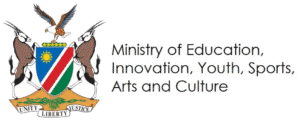Curriculum-related barriers to teaching and learning about anti-corruption education in selected secondary schools, Zambia
Keywords:
corruption, game theory, curriculum, governance, learnersAbstract
This study explored the barriers to teaching and learning of anti-corruption education content in the Zambian education curriculum. It highlights these challenges and hindrances experienced in the process of developing, learning and teaching anti-corruption education content in Zambia. The study was based on analysing several teaching methods and content in the curriculum. To do this, the study brings to bare alteration to the curriculum compelled by changes in the governance systems from One Party State to Multi-Party system driven by free-market policies during the 1990s. It alludes to the lack of providing anti-corruption content in the educational curriculum at an early age to learners which weakens their moral edge to desist corruption later. The study is anchored on Macrae’s game theory of 1982 providing a theoretical underpinning to the study. The game theory was used to provide a platform in explaining curriculum related barriers to the fight against corruption in the education sector. Qualitative research methodology was used because it gave a clear understanding of the participants’ views, experiences and captured participants’ perceptions as they occurred naturally. Data for the study was collected by conducting interviews with focused group discussions in classrooms in the selected secondary schools. Succinctly, participants were engaged qualitatively through interviews and focus group discussion for three (3) months. Equally, documentary analysis provided a technique for data collection. The study demonstrates a critical approach to analyse corruption persistence in the education by exploring it through professional impediments in secondary schools of Zambia. Nevertheless, this study identified and found out insufficient teaching and learning resources needed for anti-corruption education, the absence of teaching forums for teachers on anti-corruption education content and the delayed induction of learners into integrity education through the curriculum as hindrances to teaching and learning anti-corruption material. The study recommended a comprehensive stand-alone subject on integrity education in natural science subjects too.
Downloads
Published
How to Cite
Issue
Section
License

This work is licensed under a Creative Commons Attribution 4.0 International License.






